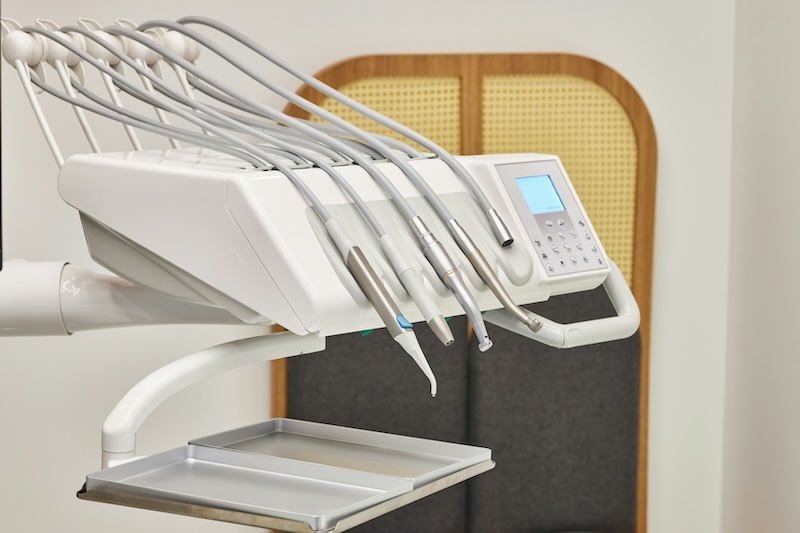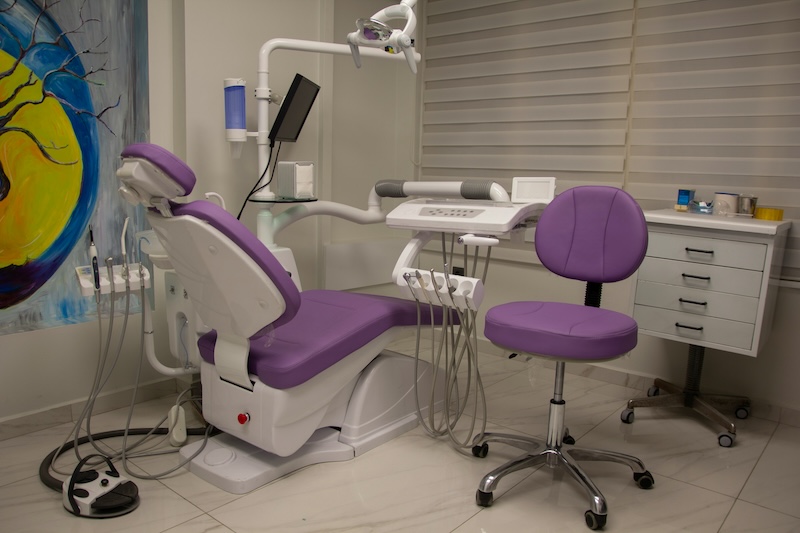Introduction
Titanium has revolutionized the dental implant industry due to its unique properties, such as biocompatibility, corrosion resistance, and its ability to bond with bone. These features make titanium the preferred choice for dental implants, allowing patients to benefit from reliable, long-lasting solutions for missing teeth.
In this article, we explore the specific applications of titanium in dental implants, detailing the benefits it provides and examining why it is considered the gold standard for dental restorations.
Features of Titanium
Titanium offers several key features that make it particularly suitable for dental implant applications:
- Biocompatibility: Titanium is non-toxic and does not provoke immune reactions, making it safe for long-term use in the human body.
- Corrosion Resistance: Titanium’s resistance to corrosion from bodily fluids ensures that dental implants remain intact and functional for many years.
- Osseointegration: Titanium’s unique ability to bond with bone (osseointegration) provides a stable foundation for dental implants, similar to natural tooth roots.
- High Strength-to-Weight Ratio: Titanium is lightweight yet strong, ensuring that dental implants are comfortable while providing the necessary support for chewing and speaking.

The Most Commonly Used Grades of Titanium in Dental Implants
- Grade 4 Titanium: Grade 4 titanium is commercially pure and offers excellent strength and corrosion resistance, making it one of the most commonly used grades in dental implants.
- Grade 5 Titanium (Ti-6Al-4V): Grade 5 titanium is an alloy that contains aluminum and vanadium, providing higher strength and durability. It is also commonly used in dental implants for patients requiring additional support.
Advantages of Titanium in Dental Implants
The use of titanium in dental implants provides several notable advantages:
- Long-Term Success: Titanium implants are known for their durability, offering long-term reliability and reducing the need for replacements.
- Reduced Risk of Rejection: Titanium’s biocompatibility minimizes the risk of rejection, leading to a high success rate for dental implants.
- Natural Feel and Function: Titanium’s ability to fuse with bone ensures that dental implants feel and function like natural teeth, providing comfort and stability for patients.
Key Applications of Titanium in Dental Implants
Titanium is used in various components of dental implants, including:
- Root Replacement: Titanium screws act as the artificial root for dental implants, anchoring the prosthetic tooth securely in the jawbone. This ensures that the implant remains stable and secure, just like a natural tooth root.
- Abutments: Titanium abutments connect the implant screw to the dental crown, providing a strong interface between the implant and the visible tooth. This connection is critical for maintaining the stability and function of the dental restoration.
- All-on-4 and Full Arch Restorations: Titanium implants are used in procedures like All-on-4 to support an entire arch of prosthetic teeth, restoring function and aesthetics for patients with multiple missing teeth.
Comparisons: Titanium vs. Other Materials in Dental Implants
Titanium is often compared to other materials used in dental implants, such as zirconia, stainless steel, and ceramic:
- Titanium vs. Zirconia: Zirconia is also used in dental implants, but titanium’s proven track record, biocompatibility, and strength make it the preferred choice for most patients. Titanium also integrates more predictably with bone.
- Titanium vs. Stainless Steel: Stainless steel is rarely used for dental implants due to its lower biocompatibility and higher risk of corrosion compared to titanium. Titanium provides better long-term outcomes and is safer for long-term implantation.
- Titanium vs. Ceramic: Ceramic implants are aesthetically appealing, but titanium’s strength and ability to osseointegrate effectively make it a better choice for long-term stability. Titanium implants are also more versatile and suitable for a wider range of patients.
Benefits of Using Titanium in Dental Implants
The benefits of using titanium in dental implants are numerous:
- Bone Integration: Titanium’s ability to bond with bone through osseointegration ensures that implants are stable and secure, reducing the risk of implant failure. This stability is crucial for the long-term success of dental restorations.
- Corrosion Resistance: Titanium’s resistance to corrosion from saliva and other bodily fluids ensures that implants remain functional for decades, providing a long-term solution for missing teeth.
- Durability: Titanium’s strength and resilience make it ideal for dental implants, providing a long-lasting solution that can endure the forces of chewing and speaking. This durability makes titanium implants a reliable choice for patients.
Challenges in Using Titanium in Dental Implants
Despite its advantages, there are challenges associated with using titanium in dental implants:
- Cost: Titanium dental implants are more expensive than some alternative materials, which can make the upfront cost a barrier for some patients. However, the long-term benefits and success rates often justify the initial investment.
- Metal Sensitivity: Although rare, some patients may experience sensitivity or allergies to metal, which can limit the suitability of titanium for certain individuals. In such cases, zirconia implants may be considered as an alternative.
Future Trends for Titanium in Dental Implants
Advancements in dental technology are expected to further enhance the use of titanium in implants. Innovations in surface coatings are being developed to promote faster osseointegration and reduce healing times. Additionally, 3D printing technology is making it possible to create custom titanium implants that offer an even better fit and improved outcomes for patients.
FAQs about Titanium in Dental Implants
- Why is titanium used for dental implants?
- Titanium is used due to its biocompatibility, strength, and ability to bond with bone, making it ideal for replacing missing teeth.
- How does titanium integrate with the jawbone?
- Titanium integrates with the jawbone through a process called osseointegration, which ensures that the implant is stable and secure.
- Are titanium dental implants safe for long-term use?
- Yes, titanium is biocompatible and resistant to corrosion, making it safe for long-term use in the body.
- What are the benefits of titanium over zirconia in dental implants?
- Titanium has a longer track record of success, better osseointegration, and higher strength compared to zirconia, making it a more reliable option.
- Can titanium dental implants cause allergies?
- Titanium allergies are extremely rare, but for those who are sensitive to metals, zirconia implants may be a suitable alternative.
- How long do titanium dental implants last?
- Titanium dental implants can last for decades, often providing a lifetime solution for missing teeth if properly maintained.
- Is titanium used in full arch restorations?
- Yes, titanium implants are used in procedures like All-on-4 to support an entire arch of prosthetic teeth.
- What challenges are associated with using titanium in dental implants?
- The main challenges include the high cost of titanium and the rare possibility of metal sensitivity in some patients.
- How does titanium’s corrosion resistance benefit dental implants?
- Titanium’s resistance to corrosion ensures that implants remain functional and intact despite constant exposure to saliva and other bodily fluids.
- Is titanium suitable for patients with metal allergies?
- Titanium is hypoallergenic, but in rare cases of metal sensitivity, zirconia implants may be considered as an alternative.
- How does titanium compare to ceramic implants?
- Ceramic implants are aesthetically appealing, but titanium’s strength and predictable bone integration make it a superior choice for most patients.
- Can titanium dental implants be customized for individual patients?
- Yes, advancements in 3D printing technology are allowing for customized titanium implants that offer a better fit and improved patient outcomes.
- What future developments are expected for titanium in dental implants?
- Innovations in surface coatings and 3D printing are expected to improve the integration and success rates of titanium dental implants.
- Why is titanium considered the gold standard for dental implants?
- Titanium’s proven success rate, biocompatibility, and ability to fuse with bone make it the gold standard for dental implants.
- Can titanium implants be used for single and multiple tooth restorations?
- Yes, titanium implants can be used for both single-tooth replacements and full arch restorations, offering versatility in dental treatments.
Conclusion
Titanium’s unique properties make it the gold standard for dental implants. Its biocompatibility, strength, and resistance to corrosion ensure that it provides a stable and durable solution for patients with missing teeth. Despite challenges related to cost and rare cases of metal sensitivity, the benefits of using titanium in dental implants far outweigh the drawbacks, ensuring its continued use and expanding role in modern dental care.






